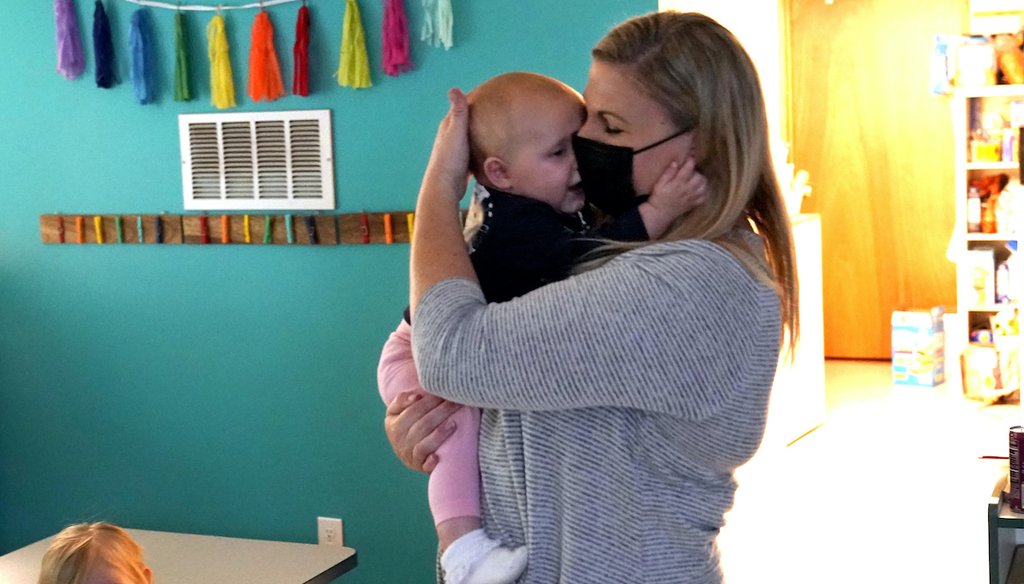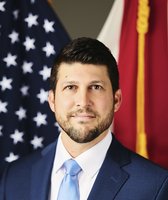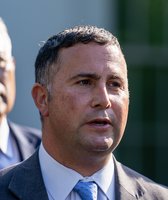Stand up for the facts!
Our only agenda is to publish the truth so you can be an informed participant in democracy.
We need your help.
I would like to contribute

Pfizer and BioNTech have requested an emergency use authorization from the Food and Drug Administration for a two-shot, low-dose regimen for children 6 months to 5 years old. It would be the first COVID-19 vaccine for the age group in the U.S. (AP)
If Your Time is short
-
Pfizer and partner BioNTech have submitted an emergency use authorization request to the FDA for a two-shot, low-dose regimen for children 6 months to 5 years old.
-
The companies say that clinical trial data shows that the vaccine is safe, but researchers are still testing a third dose following results that showed the first two weren’t effective enough for children aged 2 to 4.
-
Many parents are concerned about giving their kids a vaccine that was developed quickly and that hasn’t been around very long.
Roughly 23 million children in the U.S. can’t get a vaccine against COVID-19 — but that may soon change.
Pfizer and BioNTech have requested an emergency use authorization from the Food and Drug Administration for a two-shot, low-dose regimen for children 6 months to 5 years old. It would be the first COVID-19 vaccine available for the age group in the U.S.
Clinical trial data shows that the vaccine is safe, the companies say, but researchers are still testing a third dose following results that showed that the first two didn’t mount a sufficient immune response in children aged 2 to 4. The shots, which are one-tenth the dose given to older children and adults, did provide a strong response in children 6 months to 2 years old.
Data on a third shot won’t come out until late March, health officials said, but regulators are expected to authorize it once it's submitted. The idea behind seeking authorization for the first two doses now, some pediatric experts said, is to get the ball rolling on protecting infants and and toddlers.
Besides offering relief for worried parents, the vaccines could help contain disruptive daycare closures that have affected families with young children for nearly two years.
But some parents are still concerned about giving their children a vaccine that was developed relatively quickly and hasn’t been around very long.
We reviewed the available data and consulted with pediatric experts about what parents should know.
The vaccine and children
The Centers for Disease Control and Prevention recommends COVID-19 vaccination for everyone ages 5 and up, and recommends boosters for children age 12 and older. The Pfizer vaccine is the only one authorized in the U.S. for children under 18.
Just over 8 million children ages 5 to 11 have received at least one COVID-19 vaccine dose This represents only about 28% of the age group, but it amounts to a large pool of safety data on children, experts told us.
Pfizer’s data for children under 5 "has not yet been released, but they are reporting no safety concerns, just concerns about efficacy at the lower dose," said Dr. Joseph Perno, chief medical officer and pediatric emergency medicine physician at Johns Hopkins All Children’s Hospital in St. Petersburg, Florida. "So, there is no concern from a safety standpoint. I would instruct parents that it’s safe and I would give it to my own child."
"The safety of the vaccine has been well documented. We’ve never seen the extent of safety monitoring like we’re seeing now," said Dr. Adriana Cadilla, pediatric infectious disease physician at Nemours Children's Hospital in Orlando, Florida. "What I see in my practice is a lot of kids coming in with heart problems with acute COVID or with post-COVID syndrome. You don't see them coming in with vaccine-related problems — they exist, but the chances of having an adverse event from the actual disease is much higher."
The American Academy of Pediatrics, the professional association of pediatricians, said the authorization news was an encouraging development. More than 3.5 million new COVID-19 cases were reported in children in January, the organization said, the highest number since the pandemic’s onset.
"It is important that all children can benefit from the protection that the vaccine offers," AAP President Moira Szilagyi said. "I encourage parents to bring any questions they have about the vaccine to their child’s pediatrician. Pediatricians are eager to have these conversations."
What pediatricians want parents to know
Dr. Rachel Orscheln, associate professor of pediatrics at Washington University School of Medicine in St. Louis, said she wants parents to know that the vaccines, while expedited, have gone through the normal testing procedures for safety and efficacy.
"We have information on both the pre-authorization data and now the follow up monitoring on hundreds of millions of people," Orscheln said. "For older children and adults, there has been ongoing surveillance."
"Some rare adverse events have been detected," she added, "but by and large, the weight of the evidence suggests that everyone is much safer to be vaccinated than to experience this infection."
Perno said it’s a misconception that kids can’t experience bad outcomes from COVID-19.
"The complications seen in COVID-19, such as multi-inflammatory syndrome, we think it’s much more prevalent in kids who are not vaccinated," Perno said. "We've seen bad outcomes from this disease in children — not as bad as adults with comorbidities, but still bad. Families need to be educated that it’s not as benign of a disease in children as they are being led to believe."
Besides the safety of the vaccines, doctors said that parents they speak with have questions and concerns about potential long-term effects.
But any side effects from vaccines almost always occur in the days or months following vaccination, medical experts have said.
"There aren’t examples of adverse events happening long term in any vaccine that’s been licensed, and that's because the vaccine doesn't hang around in your body that long," Orscheln said.
Scientists and doctors don’t typically wait for long-term data to become available before rolling out vaccines, though they continue to monitor them over time.
When vaccines for chickenpox and human papillomavirus were introduced, for example, they had safety profiles for the first year or two, but not for 15 years, Perno said.
Multiple doses isn’t new for child vaccines
One potential area of confusion is Pfizer/BioNTech’s decision to seek authorization for two doses while it gathers data on a third dose.
The idea is to get enough protection to as many children as possible, and as quickly as possible. The doses under study are much smaller than what’s given to adults, experts note, so it makes sense that some young children may need one more.
In these trials, researchers are trying to give the dose that provides protection, while also not creating excess side effects.
Using multiple doses is common for child vaccines.
Parents should think of the COVID-19 vaccine as they do various other childhood vaccines that are given in a series of doses, such as the rotavirus and DTaP vaccines for infants, said Cadilla, from Nemours Children’s Hospital.
"You go at 2 months, 4 months, 6 months, and you get all these shots," she said, referring to recommended vaccination schedules for infants. "It’s not unprecedented. I think we were hopeful we didn’t need more, but I’m not at all surprised. We know there’s probably going to be more COVID coming, and as opposed to fixing things, we are going to try to be preemptive about it."
Perno agreed.
"My take on this is that they're very confident that we are going to need three doses and it takes time to get to the third dose, often five- or six-month waiting periods after the initial doses," he said. "They have enough safety data to say one and two are safe so they’re thinking, let’s get this started."
Our Sources
Pfizer, Pfizer and BioNTech Initiate Rolling Submission for Emergency Use Authorization of Their COVID-19 Vaccine in Children 6 Months Through 4 Years of Age Following Request From U.S. FDA, Feb. 1, 2022
Washington Post, Pfizer-BioNTech coronavirus vaccine for children under 5 could be available by the end of February, people with knowledge say, Jan. 31, 2022
American Academy of Pediatrics, American Academy of Pediatrics Statement on COVID-19 Vaccine for Children Under 5, Feb. 1, 2022
NPR, Vaccinate and test. That advice isn't much help to parents who have kids under 5, Jan. 27, 2022
New York Times, No Shots, No Day Care: Parents of Kids Under 5 Stuck in Grueling Limbo, Jan. 14, 2022
Pfizer, Pfizer and BioNTech Provide Update on Ongoing Studies of COVID-19 Vaccine, Dec. 17, 2021
Phone interview, Dr. Joseph Perno chief medical officer and pediatric emergency medicine physician at Johns Hopkins All Children’s Hospital, Feb. 1, 2022
Phone interview, Dr. Rachel Orscheln, associate professor of pediatrics, infectious diseases, Washington University School of Medicine St. Louis, Feb. 2, 2022
Phone interview, Dr. Adriana Cadilla, pediatric infectious diseases physician at Nemours Children's Hospital, Feb. 3, 2022




































